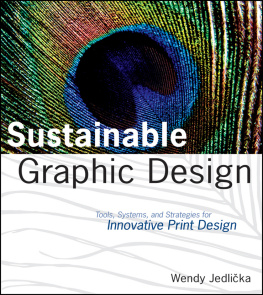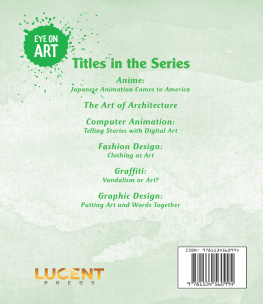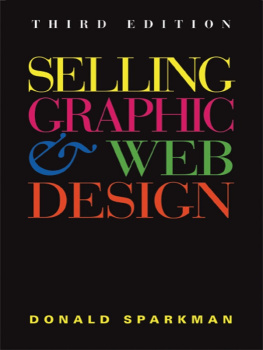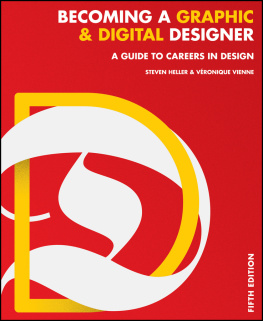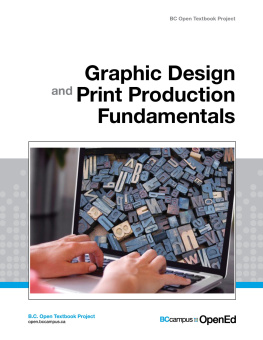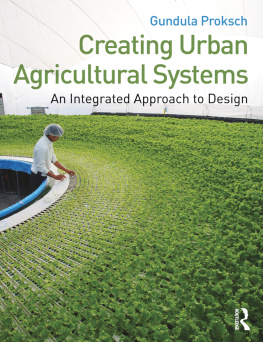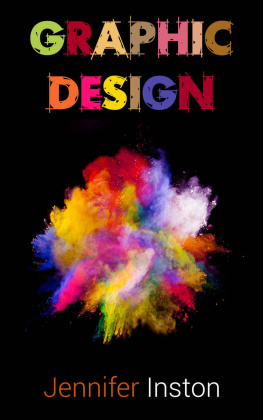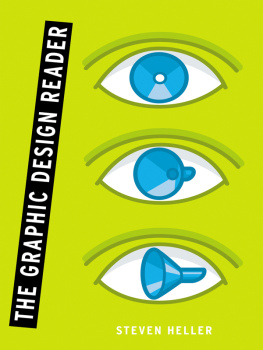
Sustainable Graphic Design
Tools, Systems, and Strategies for Innovative Print Design
Wendy Jedlika, CPP
with
Paul Andre, Dr. Paul J. Beckmann, Sharell Benson, Arlene Birt, Robert Callif, Don Carli, Jeremy Faludi, Terry Gips, Fred Haberman, Dan Halsey, Jessica Jones, Curt McNamara, Jacquelyn Ottman, Dr. Pamela Smith, Dion Zuess
Biomimicry Guild, Carbonless Promise, Chlorine Free Products Association, Environmental Paper Network, Eureka Recycling, Package Design Magazine, Printing Industry of Minnesota, Promotional Product Solutions, Sustainable Green Printing Partnership,SMSustainable Packaging CoalitionSM
Additional contributions by:
Amelia McNamara, John Moes, Tom Nelson, Holly Robbins, Sharon Sudman
Foreword by: Marc Alt
Copyright 2010 by John Wiley & Sons, Inc.
All rights reserved
Published by John Wiley & Sons, Inc., Hoboken, New Jersey
Published simultaneously in Canada
No part of this publication may be reproduced, stored in a retrieval system, or transmitted in any form or by any means, electronic, mechanical, photocopying, recording, scanning, or otherwise, except as permitted under Section 107 or 108 of the 1976 United States Copyright Act, without either the prior written permission of the Publisher, or authorization through payment of the appropriate per-copy fee to the Copyright Clearance Center, 222 Rosewood Drive, Danvers, MA 01923, (978) 750-8400, fax (978) 6468600, or on the web at www.copyright.com. Requests to the Publisher for permission should be addressed to the Permissions Department, John Wiley & Sons, Inc., 111 River Street, Hoboken, NJ 07030, (201) 748-6011, fax (201) 748-6008, or online at www.wiley.com/go/permissions.
Limit of Liability/Disclaimer of Warranty: While the publisher and the author have used their best efforts in preparing this book, they make no representations or warranties with respect to the accuracy or completeness of the contents of this book and specifically disclaim any implied warranties of merchantability or fitness for a particular purpose. No warranty may be created or extended by sales representatives or written sales materials. The advice and strategies contained herein may not be suitable for your situation. You should consult with a professional where appropriate. Neither the publisher nor the author shall be liable for any loss of profit or any other commercial damages, including but not limited to special, incidental, consequential, or other damages.
For general information about our other products and services, please contact our Customer Care Department within the United States at (800) 762-2974, outside the United States at (317) 572-3993 or fax (317) 572-4002.
Wiley also publishes its books in a variety of electronic formats. Some content that appears in print may not be available in electronic books. For more information about Wiley products, visit our Web site at www.wiley.com.
Library of Congress Cataloging-in-Publication Data:
Jedlicka, Wendy, 1959
Sustainable graphic design : tools, systems and strategies for innovative print design / Wendy Jedlicka.
p. cm.
Includes bibliographical references and index.
ISBN 978-0-470-24670-2 (pbk.)
1. Graphic artsSocial aspects. 2. Commercial artSocial aspects. 3. Sustainable design. I. Title.
NC997.J37 2009
741.6dc22 2009017330
Foreword
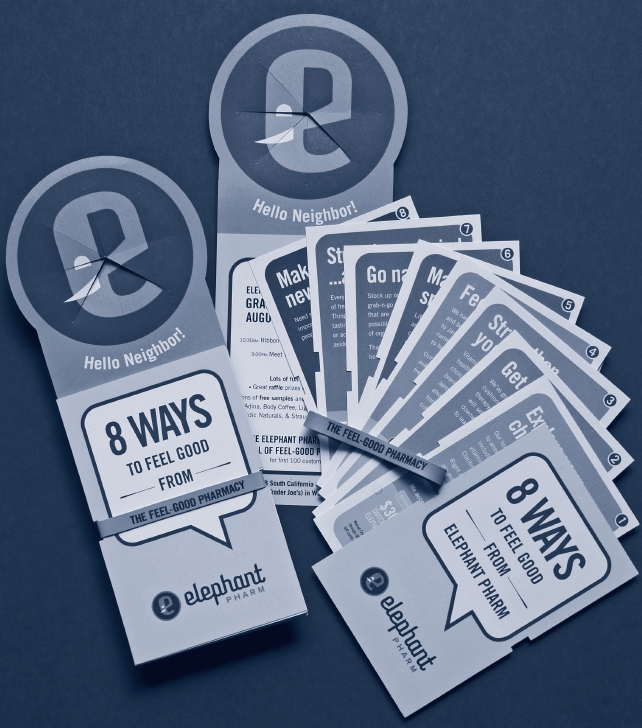
Sustainability isnt all just feel goodbut sometimes thats just what the doctor ordered. Celery Design created this promotional door hanger for Elephant Pharmacy. These cards with wellness tips and fun activities (like finger-Pilates using the natural latex band) are made from 100 percent post-consumer-waste fiber and are chop-cut to minimize trim waste.
A paradox of sustainability is that there is an underlying, commonsense simplicity beneath what appears on the surface to be a very complex discipline. One of the key points that the authors of Sustainable Graphic Design have made in their years of educating, evangelizing, and writing about sustainability, and one that is reinforced gently but persistently in this book, is that Sustainability isnt hard; its just not simple.
It is an interesting challenge to write the opening remarks and observations for a book that may be looked at in a few decades as quaint and outdated, a relic of an earlier age. I should take a step back and mention that many proponents of sustainability feel that their purpose and mission is in essence to make themselves obsolete. Their basic calling is to reveal missing or forgotten connections between cause and effect, between decisions and consequences.
Where we find ourselves today is the result of millions of these disconnects, accrued steadily over time, consciously or unconsciously, as our population and its ever-expanding need grows at a pace that outstrips traditional or balanced ways of doing things. Exactly when, why, or how our society lost that balance and began outrunning the carrying capacity of the planet is the subject of endless debate. One thing we can all agree on, however, is the need for immediate solutions.
Designers like to claim privilege of being in a unique position to change things. I dont disagree with this opinion, but I think it needs an update. A new generation of designers has realized that in order to deliver on this promise, the profession needs to move beyond its traditional calling and embody a new set of universal principles that address the consequences of design.
It is said that design decisions account for an average of 80 percent of the life cycle impacts of a product or service. Understanding the importance of this math and building the discipline and leadership to equip current and future generations of designers with the knowledge, direction, and inspiration to take responsibility is the challenge of this decade.
This book is filled with inspiration, ideas, and actionable advice from an extraordinary group of sustainability leaders. It will give designers at any stage in their careers frameworks for rethinking and assessing their daily design activity. It gives dimension to complex ideas and brings a sometimes-daunting topic to life in a way that is understandable and approachable. It provides a solid foundation in the underlying principles of design for sustainability that are a fundamental discipline of our time. Im optimistic about a future in which there will be no need for a book entitled Sustainable Graphic Design. Until that day, this volume is an essential guidebook, a road map to an achievable future where all design is well considered, and where sustainability is systemic.
Marc Alt
Co-Chair, AIGA Center for Sustainable Design
Introduction
Wendy Jedlika, CPP
02 International Network for Sustainable Design

One day, son, this will all be yours.
Photo: W. Jedlika, 1996
You must be the change you wish to see in the world.
Mahatma Gandhi
In theory, picking an eco-material is better than a non-eco one. Lists filled with materials and vendors can be found in an ever-growing field of green books and on green supplier Web sites. But these are only simple indexes of companies that offer materials, goods, or services with some level of green/eco/sustainability as part of their point of difference. Many of these companies are third-party certified and are willing to back up their environmental marketing claims; many are not.
Next page
